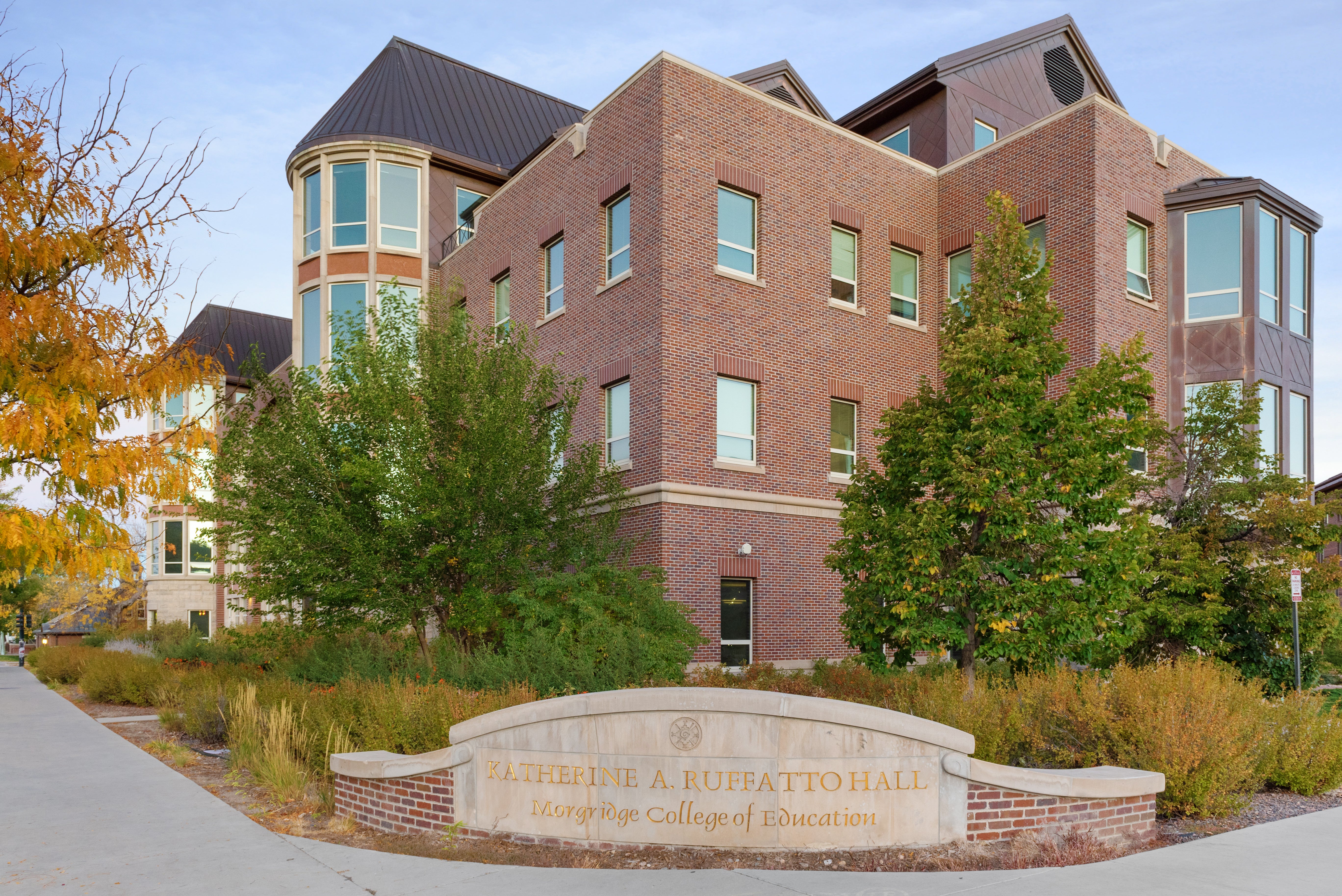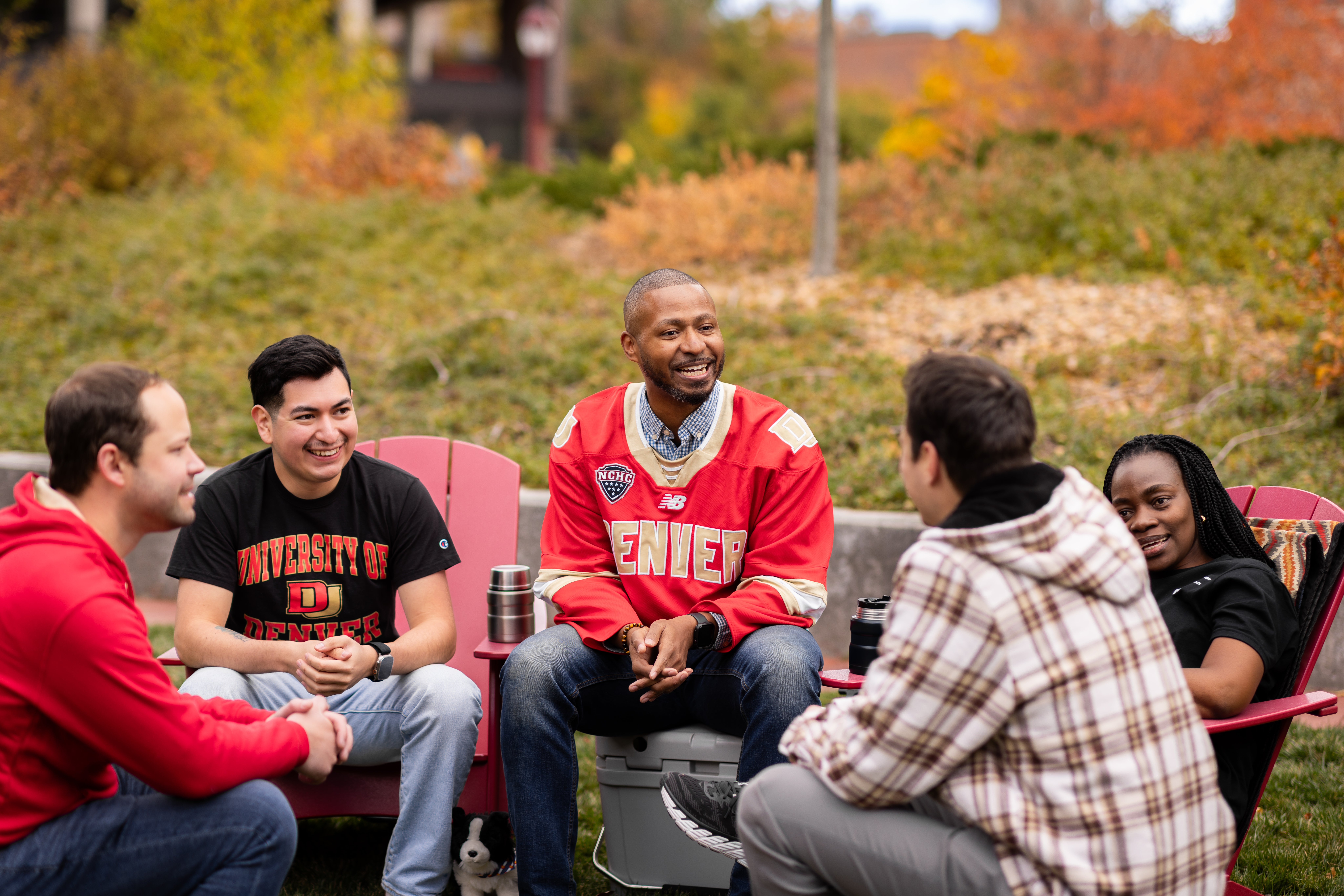Choose In-person or Online Degrees
Ignite your passion for becoming an educational leader through equity-focused, transformative curriculum and instruction. DU's Curriculum & Instruction EdD program serves the professional interests of every kind of educator including those working in K-12, higher education, private schools, non-profits and policy. The EdD will push you to master the practical art of creating innovative, inclusive and effective curricula through a mix of theory and hands-on practice. Reach every kind of learner, whether in a classroom or beyond.
This 65-credit Doctor of Education (EdD) program is perfect for those who want to deepen their understanding of teaching, learning, school systems and communities through academically grounded frameworks. You'll develop advanced skills in curriculum, pedagogy, student care and scholarship, helping to address the needs of today's educational landscape in both the public and private sectors. As a graduate with an EdD, you'll become a leader in your profession, specializing in improving the outcomes and inclusion of diverse learners.
Start Dates: Fall
Curriculum: 65 Credit Hours
Program Length: 3-4 Years
24 Credit hours towards your choice of specialization area
50% Percent of EdD internship participation MCE Class of 2022
100% Percentage of admitted students who receive some form of tuition assistance from the Morgridge College of Education
EdD in Curriculum and Instruction
How our EdD program prepares you for your career

Complete coursework that makes a difference
Our program emphasizes DEIJ-A in practice, curriculum and theory, ensuring you're ready to make a difference in the field. We're one of the few graduate programs that seamlessly blend theory with practice, preparing you to become a highly skilled educational change agent.
Doctoral dissertations that address real community needs
Our doctoral dissertations focus on researching "problems of practice" that address the specific needs of our community partners, ensuring your research makes a real-world impact.

Build experience with practical assignments
Courses include hands-on assignments that connect learning directly to real experiences in educational settings. This approach ensures you gain practical skills that meet the current needs and opportunities in education.
Receive mentoring from top faculty
You'll receive personalized mentoring from faculty experts in curriculum development, curriculum theory and effective instructional methods.
Request for Information
Application Information
Curriculum Studies
You'll delve into culturally responsive pedagogy and gain insights into the cultural, language, cognitive and academic needs of culturally and linguistically diverse learners. You'll put your understanding of language acquisition, culturally relevant literature, curriculum, assessment practice and funds of knowledge into action, connecting communities, classrooms and schools.
Gifted Education
You'll explore gifted education and leadership theory to equip yourself for leadership roles in gifted education. You'll hone your research skills, focusing on identifying problems and crafting interventions to address them.
STEM Education
You'll dive into ambitious and equitable instructional practices, designed to foster meaningful learning experiences for all students, with a special focus on historically marginalized groups. You'll also delve into different research designs and methods tailored to tackle challenges within STEM education, empowering you to address real-world problems effectively.
Culturally and Linguistically Diverse Education
You'll explore culturally responsive pedagogy, delving into the cultural, language, cognitive and academic needs of culturally and linguistically diverse learners. You'll then put this knowledge into practice, utilizing your understanding of language acquisition, culturally relevant literature, curriculum, and assessment practices to connect communities, classrooms and schools.
Curriculum and Instruction EdD Courses
Required Courses:
- CUI 4021 - Introduction to Curriculum Models and Applications
- CUI 4035 - Critical Perspectives in Education
- CUI 4180 - History and Philosophy of Education
- CUI 4700 - Cognitive, Creative, and Learning Theories and Applications
See the full Curriculum and Instruction EdD Coursework Plan here.

Get Started on Your EdD in Curriculum and Instruction
Build your Curriculum and Instruction career with a Doctor of Education from the University of Denver’s Morgridge College of Education





